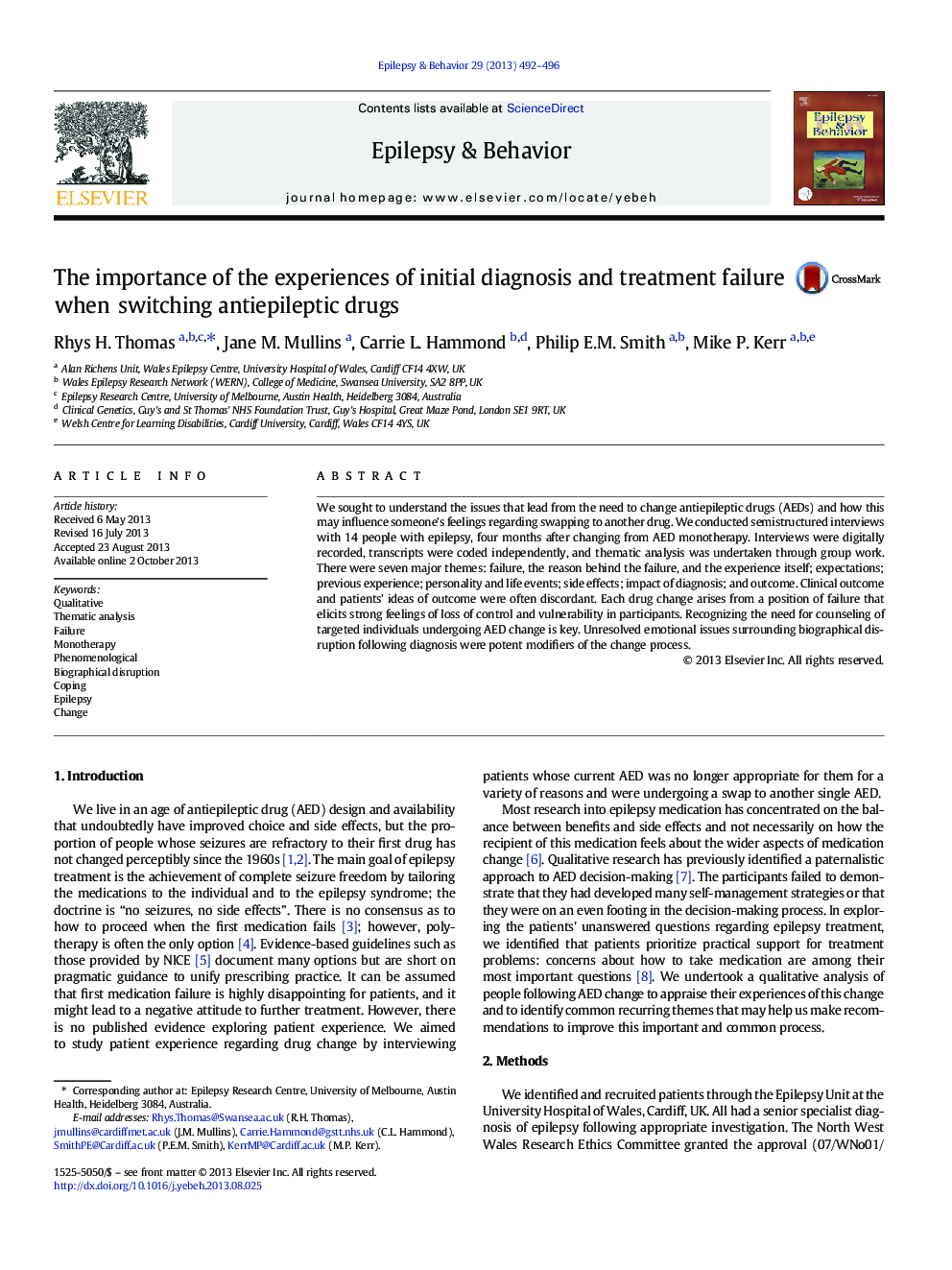| Article ID | Journal | Published Year | Pages | File Type |
|---|---|---|---|---|
| 6012667 | Epilepsy & Behavior | 2013 | 5 Pages |
Abstract
We sought to understand the issues that lead from the need to change antiepileptic drugs (AEDs) and how this may influence someone's feelings regarding swapping to another drug. We conducted semistructured interviews with 14 people with epilepsy, four months after changing from AED monotherapy. Interviews were digitally recorded, transcripts were coded independently, and thematic analysis was undertaken through group work. There were seven major themes: failure, the reason behind the failure, and the experience itself; expectations; previous experience; personality and life events; side effects; impact of diagnosis; and outcome. Clinical outcome and patients' ideas of outcome were often discordant. Each drug change arises from a position of failure that elicits strong feelings of loss of control and vulnerability in participants. Recognizing the need for counseling of targeted individuals undergoing AED change is key. Unresolved emotional issues surrounding biographical disruption following diagnosis were potent modifiers of the change process.
Keywords
Related Topics
Life Sciences
Neuroscience
Behavioral Neuroscience
Authors
Rhys H. Thomas, Jane M. Mullins, Carrie L. Hammond, Philip E.M. Smith, Mike P. Kerr,
